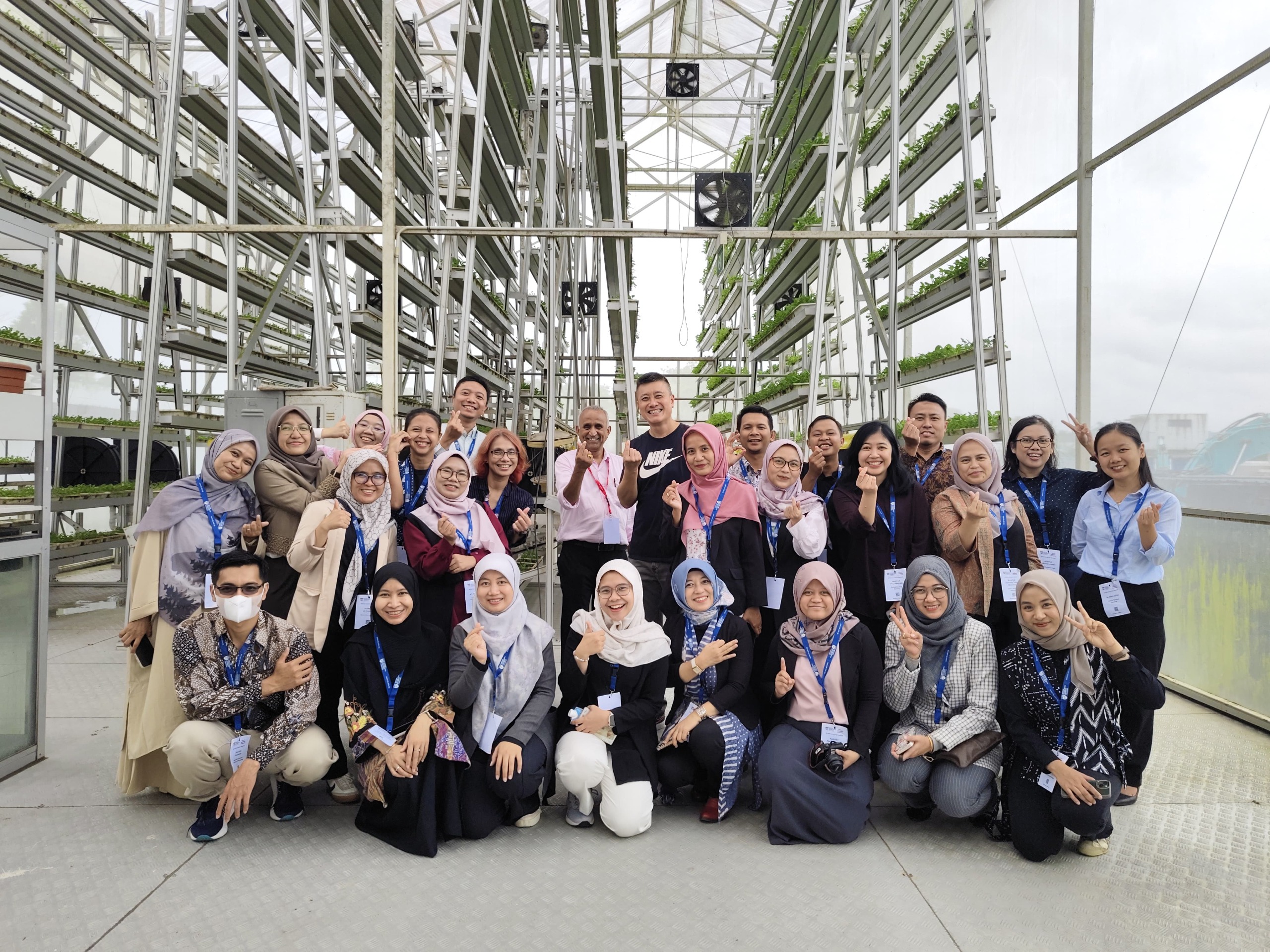Written by Gabriella Alodia
On July 14-16, 2025, FITB ITB, represented by Gabriella Alodia, Ph.D., participated in the RISING (Republic of Indonesia – Singapore) University Network Faculty Immersion Program organized by Nanyang Technological University (NTU), Singapore. This program is part of a research and education collaboration between the Government of Indonesia and Singapore. The activity involved 25 early career faculty members from universities in Indonesia that are part of the RISING University Network, namely ITB, IPB, UI, UGM, and ITS. The program topics focused on food security and sustainability.
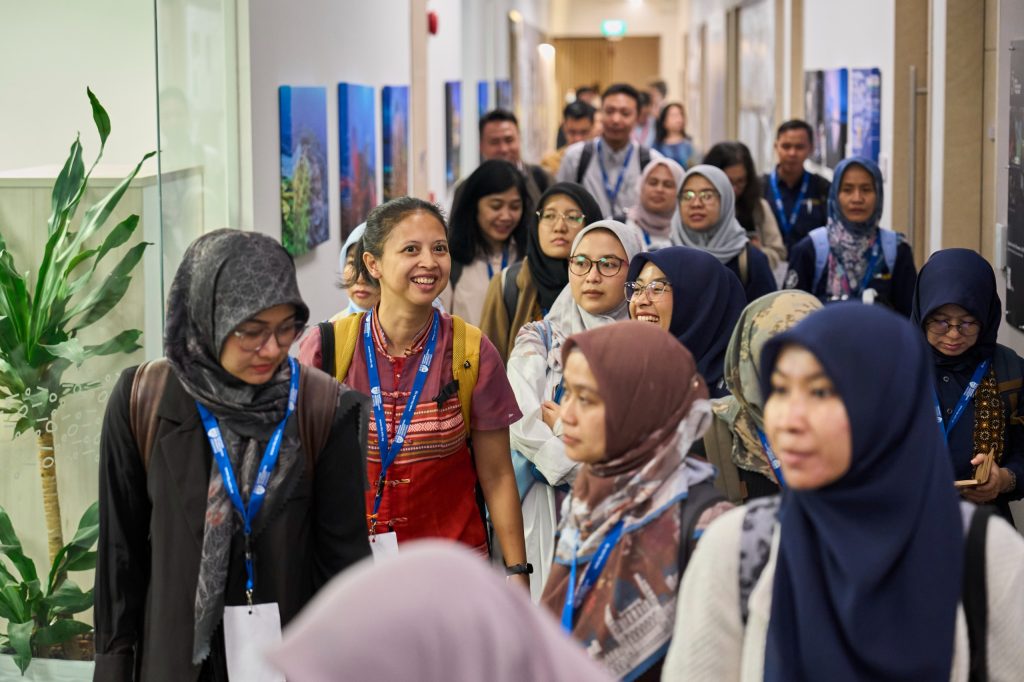
Illustration of RISING University Network Faculty Immersion Programme activities at NTU Singapore
The program opened with a presentation by INSPIRASI, the Indonesia-NTU Singapore Institute of Research for Sustainability and Innovation, a joint initiative of the Indonesian Ministry of Education, Culture, Research, and Technology, LPDP, UGM, ITB, UI, ITS, and NTU. INSPIRASI has three pillars: renewable energy, circular economy, and smart cities. The program continued with presentations on research related to food security and sustainability from professors in the fields of social sciences, business and management, biology, medicine, materials engineering, ecosystem resilience, agriculture, and earth science. Visits to various laboratories and prototype development areas were conducted in between presentation sessions to enrich the participants’ experiences and perspectives, one of which was to the Sky Greens vertical farming development area. The program closed with research sharing from doctoral candidates at NTU from various scientific fields.
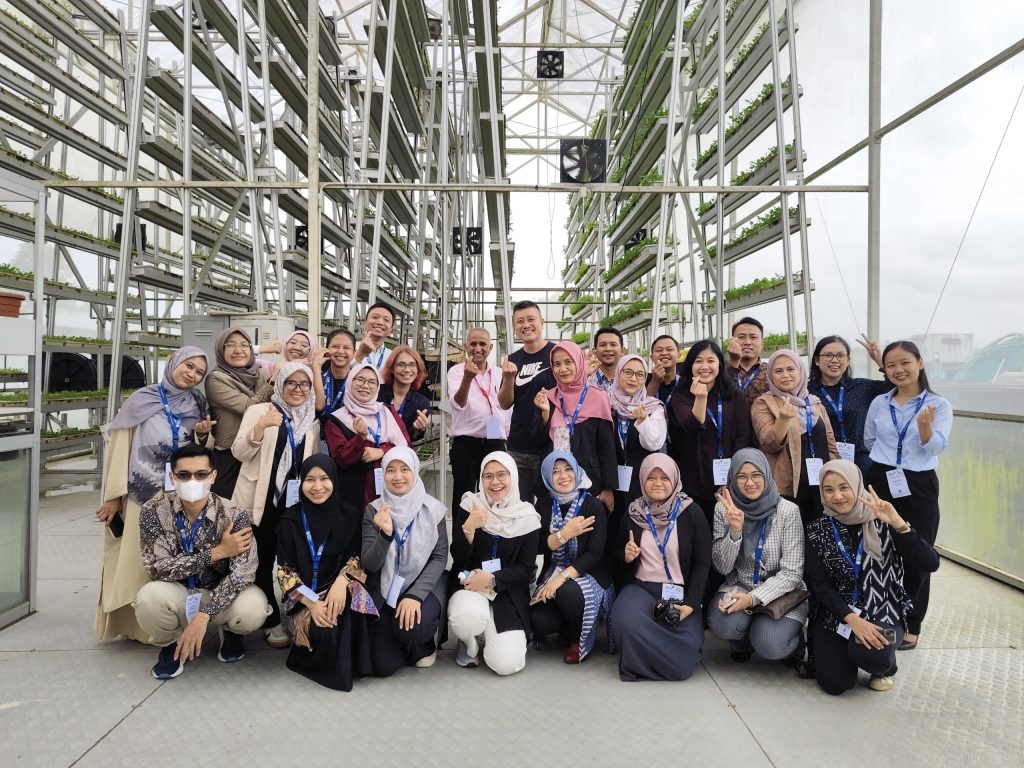
Visit to the Sky Greens vertical farming system prototype area in northwest Singapore
The program brings a new perspective to how research and education are treated and built in a developed country. Based on various presentation sessions, the Singapore government has always been committed to developing research and education in various fields. For example, before merging with NTU in 2023, the Earth Observatory of Singapore (EOS) established in 2008 had now become one of the world’s leading institutions in the development of earth science, particularly in research related to earthquakes, volcanic eruptions, tsunamis, and climate change. This was achieved, in part, through the recruitment of internationally renowned professors from various parts of the world. These professors then develop their expertise by conducting various related research, which are also supported by direct funding from the Government of Singapure, at least in the medium term. Not only are world-class professors provided by such facilities, early career permanent staff are also provided with seed funding that can be used to develop their expertise and build relationships with countries in the Southeast Asian region. Not only support in the form of proper honorariums and research funds, adequate daily facilities and infrastructure such as quality basic education for their children, decent housing and access to mobility, and security are also determining factors in the willingness of these world-class staff to settle and work in Singapore.
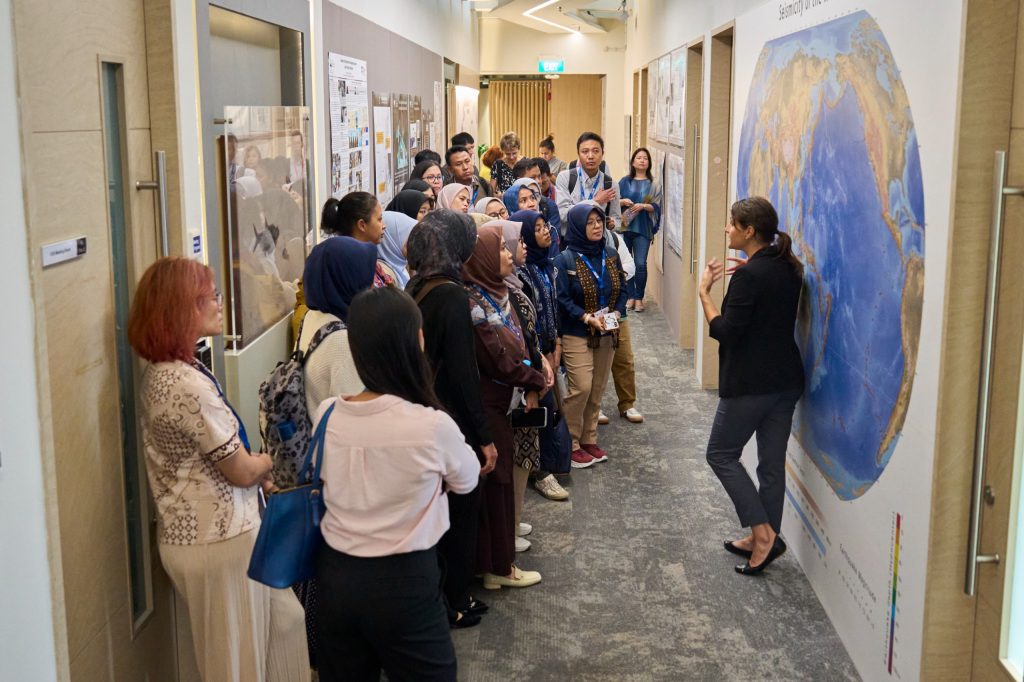
Visit to the Earth Observatory of Singapore (EOS) which since 2023 has been an official laboratory under NTU
Furthermore, NTU has strong ties with industry. Numerous laboratories on campus were established through direct collaboration with industry, both in the medium and long term, such as the Alibaba-NTU Global e-Sustainability CorpLab (ANGEL), the ExxonMobil-NTU-A*STAR Corporate Lab, the HP-NTU Digital Manufacturing Joint Lab, and the NTI-NTU Corporate Laboratory, which focuses on research and production of advanced materials and nanofabrication. Collaboration and research funding from these joint initiatives can ensure the accuracy of research targets and bridge the missing link between research conducted by universities and industry needs.
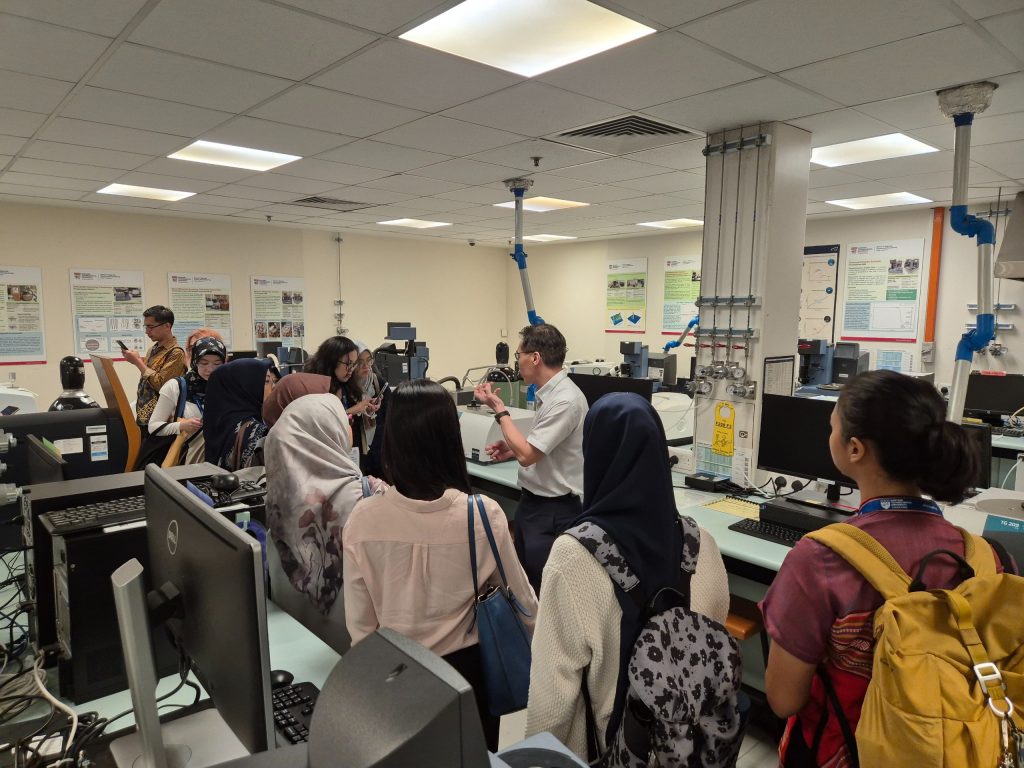
Visit to the materials development laboratory which can be used by all NTU students and staff from all levels of education
Nevertheless, NTU can only continue to survive and thrive through the creativity and efforts of its permanent staff. Since becoming an autonomous educational institution in 2006, one of NTU’s primary sources of income has been from student tuition fees. Therefore, NTU consistently collaborates with various funding agencies, including Indonesia’s LPDP, to attract students, not only at the undergraduate level but also at the postgraduate level. Staff are also encouraged to seek research funding opportunities that allow them to recruit research staff and doctoral candidates who can support their research, at least in the medium term. For example, a permanent staff member at NTU can have up to 10 postdoctoral researchers, in addition to the doctoral candidates who support their research projects. When financial, moral, and safety support are provided from the outset, the desire to maintain momentum and continue to grow naturally emerges.
The Indonesian version of this article can be accessed in fitb.itb.ac.id .
